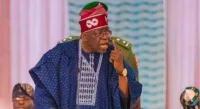Dr. Kabir Magaji Gafiya
When Governor Dikko Umaru Radda took the oath of office in May 2023, he made education one of the major pillars of his administration. At his swearing-in and at subsequent public events, including the 9th to 13th combined convocation of Umaru Musa Yar’adua University Katsina, he reaffirmed that his government is committed to restoring the state’s glorious days as both an education vanguard and an agricultural hub. For him, education is not just another sectoral priority; it is the bedrock of Katsina’s future prosperity.
As we say in the North, “Ilimi ginshikin rayuwa ne” — education is the pillar of life. This saying captures the vision of the present administration: to build a solid foundation for the future by strengthening basic education today.
Since assuming office, the government has rolled out a series of initiatives designed to modernise and expand access to quality learning. Recently, the state procured 20,000 tablets preloaded with curriculum centric teaching materials, with training scheduled for 18,000 teachers to ensure they can deliver lessons more effectively.
Thousands of pupils have also benefited from the distribution of instructional materials, while teacher recruitment, promotion, and training programmes have been scaled up to raise standards across classrooms. School infrastructure is also being improved through new buildings and renovations, creating a more conducive environment for learning. These steps reflect a deliberate strategy to give both teachers and learners the tools they need to succeed.
It is against this backdrop that Katsina entered into a partnership with EIDU, a global EdTech organisation whose work aligns perfectly with the governor’s vision to improve literacy and numeracy among our children.
EIDU’s platform is specifically designed to strengthen literacy and numeracy, which are the foundations of lifelong learning. Teachers are given smartphones preloaded with curriculum-aligned lesson guides, freeing them from the burden of writing lesson notes by hand. Pupils use the same devices to access play-based, interactive learning tasks that adapt to their pace and ability.
What makes EIDU unique is its data-driven approach. The system uses AI to track every child’s progress in real time, giving teachers insight into learning gaps, while headteachers and quality assurance officers can monitor performance across schools.
But apart from the digital strength of the programme, teaching aids are provided in classrooms as the new pedagogy is used to improve literacy and numeracy one child at a time. For the first time, administrators have access to accurate, immediate data to guide interventions, ensuring that solutions are not only well intentioned but also evidence based.
So far, the results have been striking. In EIDU-supported schools, children are more engaged, arriving early to class and participating actively in lessons. For many, it is their first exposure to smartphones, which makes learning both exciting and empowering.
Parents, too, are noticing the change. School-Based Management Committees, especially mothers’ associations, have approached SUBEB to request that EIDU be expanded to neighbouring schools, convinced by their children’s enthusiasm and progress.
EIDU complements the state’s wider digital education agenda. While the platform is currently active in selected schools across two local governments, its focus on foundational skills makes it an essential part of Katsina’s strategy. Scaling it up to reach more teachers and pupils will only strengthen the gains already made. If expanded to more teachers, the impact would be transformative.
Already, learning outcomes in EIDU-supported schools are stronger than in traditional classrooms, offering hope that learning poverty — which affects more than 70 percent of children in basic education nationwide, can be reversed.
What stands out most in this story is the role of leadership. When the idea of EIDU was presented to Governor Radda, he approved it without hesitation, driven by his passion for education and his determination to secure the future of Katsina’s children. Others can learn from this example: when political will meets evidence-based solutions, real progress follows.
As we look ahead, we are reminded that by embracing technology to bridge learning gaps, the state is showing that quality education can be delivered consistently and at scale. For us, tackling learning poverty is not just about policy; it is about fulfilling a duty to our children and laying the foundation for a prosperous future.
And at the heart of it all is the commitment of Governor Dikko Radda, whose vision is ensuring that the light of education shines brighter in every classroom across Katsina State.
* Dr. Magaji Gafiya is the Executive Chairman, Katsina State Universal Basic Education Board
Quote
As we look ahead, we are reminded that by embracing technology to bridge learning gaps, the state is showing that quality education can be delivered consistently and at scale. For us, tackling learning poverty is not just about policy; it is about fulfilling a duty to our children and laying the foundation for a prosperous future


















Leave a comment